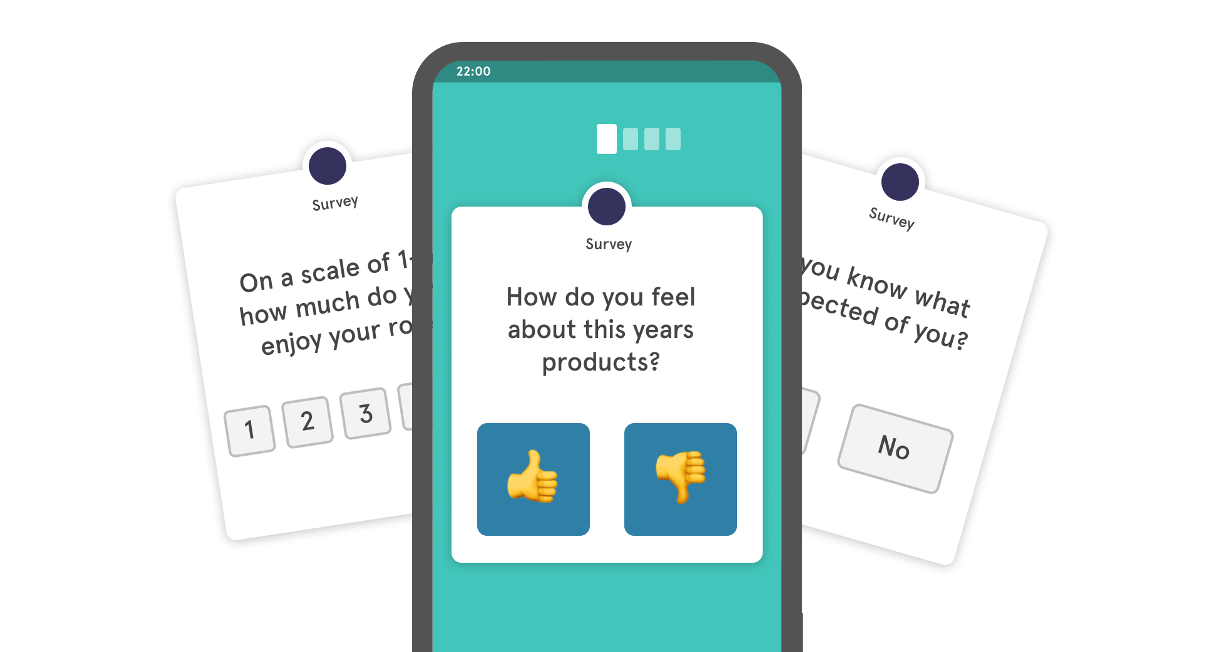5 Ways To Look After Your Employees' Mental Health
23rd Jul 2021

Written By Isidora Markovic at EduMe.
Workplaces that address mental wellbeing are as much as 12% more productive.
Good managers will be aware of their responsibility to help cultivate a healthy working environment. But doing so involves investing in both mental and physical wellbeing.
👉 Download Now: Revitalise your Learning & Development Strategy for 2021 [Free Workbook]
Short on ideas? Here are 5 ways to improve employee mental health.
1. Help your workforce look after their physical health
Mental and physical wellbeing are interlinked. Physical activity influences the release and of endorphins in the brain. In fact, just a short burst of exercise improves your mood and increases energy.
Physical activity even reduces the risk of depression by 20-30%. So encouraging your team to take part in physical activity is a simple but effective way to keep your workforce healthy and happy.

At EduMe, prior to working remotely, we organised company yoga lessons through Urban. Held every week, they proved a great way to gently encourage our people to take part in regular physical activity.
We also provide each of our employees with a personal wellbeing stipend through Juno, allowing them to support their health in whichever way suits them best.
Since switching to remote work, we’ve been encouraging everyone to take daily exercise, in any form.
Part of this encouragement has been sharing links to online lessons we’ve found beneficial or subscription services such as FIIT. Additionally, we’ve created a slack channel for people to share their favourite views when they’re on their daily walks or runs.
Several on-demand companies like Urban are offering their wellness services digitally. You can also consult YouTube for a myriad of DIY exercises, ranging from gentle yoga to more rigorous HIIT workouts.
2. Give your employees a voice
Make sure you listen to your staff - empower them with a voice, and a sense of value. Make a habit to check in with yourself and others. Get to know the individuals that make up the collective, and show that you care about them.
You can execute this on an individual level simply by making a point to ask any direct reports, departments or the whole company how they are coping, using pulse surveys.
- Related: What is a ‘Pulse Survey’?

At EduMe, we’ve been taking a two-pronged approach, employing both strategies. Managers informally check in with direct reports on their wellbeing, but we’ve also been leveraging surveys in EduMe to reach a wider group of people and gather sentiment in one go.
It’s through Pulse Surveys - which see a response rate 55% higher than conventional employee engagement surveys - we’ve been able to keep track of employee sentiment and wellbeing over time, and make sure that we’re providing adequate support for the team.
3. Offer flexibility
EduMe has been verified as a truly flexible employer by Flexa, which means we do whatever we can to ensure our team can be their best working selves.
Being a flexible employer is about understanding that no two people have the same home environment, demands, sleeping patterns and general needs.
Some may find their productivity peak very early in the morning, others later in the day. Everyone has different hours that are conducive to their personal cadence of productivity. They may have different sleeping patterns, or generally work better under different conditions - e.g. in pin-drop silence vs. in a loud room - to others.
There’s no one size fits all approach to mental health, everyone is different, so it’s important to accommodate this difference as best you can, as this will benefit the whole workforce.

Studies corroborate this, showing that a more flexible approach to working has a positive effect on employee’s, alertness, blood pressure and mental health. Having a flexi-hours policy also encourages your team to get enough good quality sleep, which significantly improves preparedness for the day and general mental wellbeing.
This approach to flexible working is especially important during a time where parents may have to juggle childcare alongside working from home.
So try to promote better mental health through employing greater flexibility. Letting your employees stagger their start/finish times not only keeps morning people and night owls happy, but as companies re-open offices, it allows people to avoid rush hour commutes.
4. Building connections with team members
The value of strong professional bonds are often underestimated - people who consider themselves to have a ‘best friend’ at work are 34% more engaged than those who don’t.
Workplace connections aren’t trivial - we spend a third (or 90,000 hours) of our lives in a work environment, and as environment significantly impacts mood, it’s important you feel kinship with the people around you. Particularly when you’re all working towards the same vision.
“Adults with strong social support have a reduced risk of many significant health problems, including depression [and] high blood pressure”. - Friendships: Enrich your life and improve health
Where we can’t meet in person, we make use of scheduling app Donut to organise Virtual Coffee catch-ups. Every two weeks, Donut connects 3 people cross-teams together at random, so they can catch up with each other.
We also try to gather over food - either in-office, or digitally through a fortnightly run ‘Cooking Club’, where food kits are posted to employees’ home addresses, and results are shared in a company Slack channel.
5. Provide time to focus on mental health
Make sure your team knows that you understand how important it is to take time out to focus on looking after themselves. A proactive approach to mental wellbeing means allotting time to self care - the same way you would allot time to going to the gym.

People may be feeling more isolated and anxious than usual - encourage them to take walks during the working day, get enough natural light, fresh air and most importantly, to switch off from work at the end of the day to delineate working hours from leisure hours.
We partner with Spill, all-in-one mental health support that connects directly through Slack. Spill allows employees access video therapy through Slack, making emotional support open to everyone in just a few clicks, without waiting lists or hurdles.
You can also ‘Ask a Therapist’ about anything that’s playing on your mind, whether that’s work-related, relationships, wellbeing - anything!
Our employees then receive a thoughtful reply within a couple of UK working days, written by a therapist from scratch. There is also access to plenty of Spill resources to help look after your mental health - exercises, articles, and crisis lines.
The takeaway...
The most important way to help your employees look after their mental health is by creating an open environment, where staff feel comfortable to share their feelings, and ask for support when it’s needed.
We use EduMe in our business to make sure our employees feel heard, and to check in regularly with the pulse of the team - that is, making sure our workforce is empowered and listened to.
Looking for a way to seamlessly train, inform and empower your employees, no matter where they are? Visit the EduMe website to find out what EduMe could achieve for you.